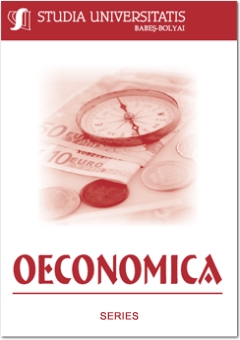GENDER ANALYSIS OF HOUSEHOLD POVERTY – AN EMPIRICAL ANALYSIS
GENDER ANALYSIS OF HOUSEHOLD POVERTY – AN EMPIRICAL ANALYSIS
Author(s): Tshediso Joseph Sekhampu, Paul-Francois MuzindutsiSubject(s): Economy
Published by: Studia Universitatis Babes-Bolyai
Keywords: poverty; gender; household head; township; South Africa.
Summary/Abstract: The study reported in this article used household level data to comparatively analyse the determinants of poverty amongst female and male-headed households in a township of Bophelong, South Africa. A random sample of households was divided into two sub-groups. A logistic regression model was estimated based on this data with the poverty status of a household as the dependent variable and a set of demographic variables as explanatory variables. The poverty rate was calculated at 68% and 59% for female and male-headed households, respectively. Further analysis revealed household income and household size as predictors of poverty in both sub-groups. The age of the household was statistically significant in female-headed households while it was not significant in male-headed households. The employment status of the household head appeared to decrease poverty in female-headed households but in male-headed this variable was not significant. There was a strong negative relationship between the labour force and poverty status in male headed households but this relationship was weak in female-headed households. The results of the study draw attention to a number of policy interventions necessary to reduce poverty in South African townships.
Journal: Studia Universitatis Babes Bolyai - Oeconomica
- Issue Year: 59/2014
- Issue No: 1
- Page Range: 44-56
- Page Count: 13
- Language: English

